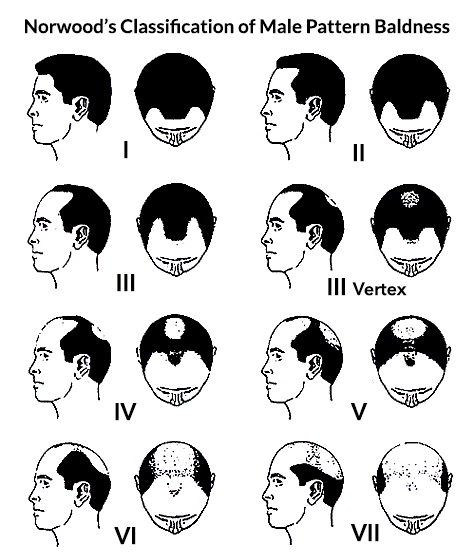Click Info Track: Your Daily Dose of Insights
Stay updated with the latest trends and information across various topics.
The Follicle Fiasco: Hair Today, Gone Tomorrow
Unravel the hair-raising truth behind hair loss with our hilarious take on the Follicle Fiasco—discover secrets you won't believe!
Understanding Hair Growth Cycles: What Causes Hair Loss?
Understanding hair growth cycles is essential for identifying the factors that contribute to hair loss. Hair grows in three distinct phases: the anagen phase (growth), the catagen phase (transition), and the telogen phase (rest). During the anagen phase, which can last from 2 to 7 years, hair actively grows. The subsequent catagen phase is a short transition period that lasts a few weeks, after which the hair enters the telogen phase, where it remains dormant for 3 to 4 months before being shed. Disruptions in these natural cycles, such as hormonal changes, stress, or nutritional deficiencies, can lead to accelerated thinning and shedding of hair.
Several factors can cause hair loss by interfering with the normal hair growth cycle. One of the most common culprits is genetic predisposition, often manifesting as androgenetic alopecia. Other influential factors include hormonal imbalances resulting from pregnancy, menopause, or thyroid issues, which can alter the duration of each phase. Additionally, stress, whether physical or emotional, can push a significant number of hair follicles into the telogen phase, resulting in shedding that may appear noticeable. Recognizing these triggers is vital in developing effective prevention strategies for maintaining healthy hair.

Home Remedies for Thinning Hair: Solutions You Can Try Today
Thinning hair can be a frustrating experience, but there are several home remedies that you can try today to help promote hair growth and strengthen your locks. One effective option is to use a mixture of essential oils, specifically rosemary and peppermint oil, which have been shown to stimulate hair follicles. To use this remedy, mix a few drops of each oil with a carrier oil, such as coconut or jojoba oil, and massage it into your scalp for at least 30 minutes before rinsing it out. This not only boosts circulation but also nourishes the hair roots, leading to potentially thicker strands.
Another popular remedy involves utilizing aloe vera, known for its soothing properties and ability to promote hair health. Applying fresh aloe vera gel directly to your scalp and hair can help reduce inflammation and unclog hair follicles. Leave the gel on for about an hour before washing it out with a gentle shampoo. Additionally, consider incorporating protein-rich foods like eggs and nuts into your diet, as protein plays a crucial role in hair structure and strength. Remember, consistency is key; integrating these natural solutions into your routine can lead to significant improvements over time.
The Science of Hair Follicles: Why Your Hair Falls Out and How to Prevent It
The health of your hair is intricately tied to the functioning of hair follicles, the tiny organs within your skin responsible for hair production. Each hair follicle goes through a natural cycle of growth, rest, and shedding. Factors such as genetics, hormonal changes, and environmental stressors can disrupt this cycle, leading to hair loss. In particular, conditions like androgenetic alopecia or hereditary hair loss can cause the follicles to shrink, resulting in thinner hair and ultimately, loss. Understanding these biological mechanisms is crucial for anyone looking to maintain a healthy mane.
Fortunately, there are several proactive steps you can take to prevent hair loss. Incorporating a balanced diet rich in vitamins and minerals, especially biotin and zinc, promotes healthy follicle function. Additionally, gentle hair care practices, such as avoiding excessive heat and harsh chemicals, can help preserve the integrity of your hair. Regular scalp massages may increase blood flow to the hair follicles, fostering a favorable environment for growth. By understanding the science behind hair loss and taking the right preventative measures, you can keep your locks fuller and healthier for longer.